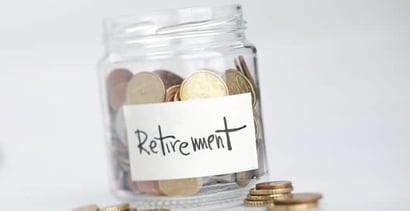

Many of us over the past few years have been hit with the double-whammy of seeing our credit score decline at the same time as our retirement savings.
Economic conditions have been so difficult for some that they’ve been forced to dip into the retirement funds just to make ends meet.
If you find yourself in this unenviable position, just know you’re not alone. Also know there are things you can do about it.
Now that the economy has started to improve, a lot of folks are starting to breathe a little easier.
That’s not to say we’re out of the woods yet, especially when it comes to our credit scores. As you know, it takes a long time build up your credit score, but it can fall almost overnight.
Now many of us are faced with the question: How do I save for retirement when I have bad credit?
This guide should answer that important question, along with getting you back on track to regular retirement saving again.
1. The amount you owe.
The first thing to consider when faced with saving for retirement when you have bad credit is the amount you still owe on your credit cards.
If you’ve had financial difficulty, you’ve probably missed some payments and may even be in default on some of your cards. Because of this, you are no doubt paying a high rate of interest.
Instead of trying to make those payments and also put money away into your retirement account, my advice is to put every penny you can toward paying off your debt.
By paying down your 22 percent credit card bill, you are actually making a better return on your money than any investment out there.
2. Keep making payments.
Unless you plan to file for bankruptcy, you will still need to make your payments.
Try contacting your creditors to see if you can work out a payment plan. You may even ask for a lower interest rate if you agree to automated deductions from a bank account.
By negotiating with them and making consistent payments, you’ll reduce your debt faster and have money to start putting toward your retirement savings.
“Paying down your debt and saving more for
retirement is likely raising your credit score.”
3. Contribute to your 401(k).
If you are lucky enough to work for a company that has a 401(k) plan, you may have stopped contributing to it in order to maximize your take-home pay. That’s not a bad decision – provided you are then paying the maximum you can toward paying off your debt.
However, if your company also provides matching funds to your 401(k), you should start contributing again. The matching funds you get can add up to a significant return on your investment, regardless of what the markets do.
4. Debt consolidation loans aren’t the way to go.
Unless you find a reputable company that can offer you a good rate, don’t consider them.
However, if you are able to find a reasonable consolidation loan at a rate that is less than what you’re currently paying, it may be a good decision for some people.
Only consider this if you have a steady income and have your spending under control. Discipline is the only way to make this option work.
5. Invest in your future.
If you’ve been consistent and paid down your debts, it’s not time to celebrate quite yet.
The amount of money you had been paying toward your credit cards can now be diverted into your retirement savings account without you even missing it!
If you’ve been diligent enough to spend less and get rid of your debt, then now it’s time to start paying yourself. Don’t look at it as a sacrifice. Look at it as an investment in your future.
The great thing about paying down your debt and saving more for retirement is you are also likely to be raising your credit score at the same time. This has the extra benefit of lowering what you pay for insurance, interest and potentially even your cell phone plan.
Soon you’ll start to see extra money each month just from what you’re not paying out. And your retirement savings? Well, that’s still growing!
Photo source: fitsnews.com.
Advertiser Disclosure
BadCredit.org is a free online resource that offers valuable content and comparison services to users. To keep this resource 100% free for users, we receive advertising compensation from the financial products listed on this page. Along with key review factors, this compensation may impact how and where products appear on the page (including, for example, the order in which they appear). BadCredit.org does not include listings for all financial products.
Our Editorial Review Policy
Our site is committed to publishing independent, accurate content guided by strict editorial guidelines. Before articles and reviews are published on our site, they undergo a thorough review process performed by a team of independent editors and subject-matter experts to ensure the content’s accuracy, timeliness, and impartiality. Our editorial team is separate and independent of our site’s advertisers, and the opinions they express on our site are their own. To read more about our team members and their editorial backgrounds, please visit our site’s About page.




